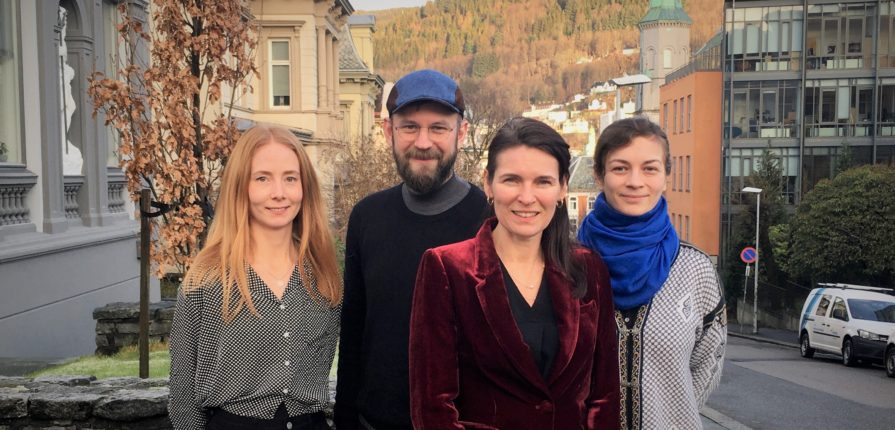BARNUNGE21: Three young researchers from the Centre held key roles in the process towards a national strategy for children at risk.
The Barnunge21 strategy process was launched earlier this year by the Norwegian government, in order to create a targeted and comprehensive national effort for vulnerable children and young people.
Professor Marit Skivenes led the working group on research. In addition, PhD students Hege Helland, Barbara Ruiken and Audun Løvlie have functioned as secretaries for the working groups on research, education and professional practice.
High ambitions for research
Hege Helland worked with the group focusing on research. A key contribution from their report, says Hege, is the clear call for children and young people in vulnerable situations to be defined as one of the most important societal challenges in Norway.
– We also recommend to strengthen children and young people’s own role in research concerning them. This is an important step in the right direction if Norway is to be at the forefront of research on children’s rights and welfare, Helland explains.
Connection between education and practice
Barbara Ruiken was the secretary for the expert group on education. Their report focuses on the need for better connection between education and practice. Some of the suggestions in their report are more extensive use of internships as part of the education, and improved mentoring arrangements.
– It’s important that the education provides the students with the skills needed in this work, and that professionals working with children and young people are given the opportunity to continual professional development and reflection, states Ruiken.
Better dissemination
Audun Løvlie highlights the need for improved dissemination of research-based knowledge to practitioners and children as a key message from the report he contributed to. And, equally important, researchers should have access to and draw on the expertise of children, young people, and practitioners.
– The knowledge that lies in the various sectors that work with children and young people, can today often be disconnected. To strengthen collaboration and improve existing infrastructures for knowledge-sharing can foster a better basis for implementation, explains Løvlie.
Valuable experience
Through the engagement as secretaries for the expert groups, the PhD students got valuable insight in how policy formation takes place in practice.
– We gained experience with an important feature of the democratic process. Several different professionals from different sectors shared experiences and needs, while having to negotiate and formulate one message to be used as a platform for political decision-making, states Løvlie.
The researchers also emphasize the value of diversity as important for the final outcome.
– Bringing people from different backgrounds together helped a lot to get a comprehensive overview of the challenges, explains Ruiken.
Helland shares this experience.
– I have learned a lot from the discussions we had within the group. Not only in terms of knowledge about the topic, but also about how the same issues are perceived within different disciplines and from different viewpoints. It provides a reminder that it is important to look at issues from a broader perspective.
Barnunge21-reports
All reports are available online (in Norwegian):
PHOTO: Daniel Nygård


